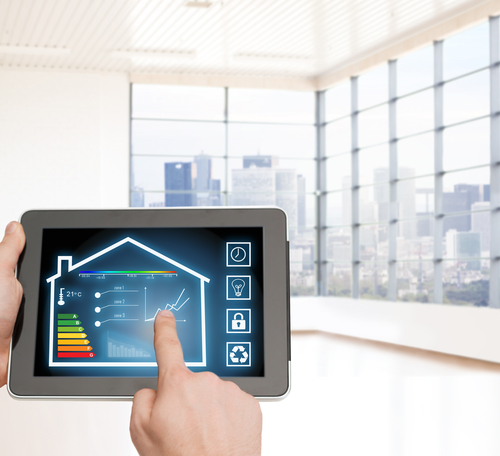Digital construction sites and connected homes will be a major showcase at GITEX Technology Week 2015, helping to drive “smart” living, as the GCC’s construction projects pipeline is set to reach USD 3 trillion in 2015, industry experts have announced.
In 2015, the GCC’s total pipeline of construction projects both planned and underway is set to reach $2.8 trillion in 2015, according to a recent report from Deloitte. At the same time, the Internet of Things (IoT) era is becoming central to the construction value chain to create “smart living” over the next five years.
As Future Cities rise across the region, GITEX Technology Week 2015 will showcase a wide range of Connected and Smart Homes solutions, such as smart meters, intelligent lighting, and remote monitoring.
As a result, the global Connected Cities market is set to top $392 billion in revenue, while the Connected Homes market is set to reach USD 111 billion, according to a new report by Frost & Sullivan.
“Urbanising Middle East cities face increasing challenges across the construction sector, citizen services, and mitigating climate change,” said Hannes Liebe, COO, SAP MENA, the enterprise software company.
“By using the power of Big Data analysed over the cloud, the region’s cities can develop innovative ‘smart’ solutions for safer, more prosperous, and responsive communities. As a result, cities can better manage complex mega-projects and resources, and respond to citizen demands,” added Hannes Liebe.
At GITEX Technology Week 2015, SAP will present best practices in Smart City mobile app innovation, with examples from its Future Cities platform that runs on the real-time SAP HANA platform.
For example, the Barcelona for You (BCN4U) Tourist Network is a mobile app that uses data from sensors in tourist sites across the city to provide personalised travel itineraries, while SK Solutions’ crane safety solution analyses Big Data from sensors on construction sites to prevent accidents.
In further trends, during the construction design phase, augmented reality can help engineers to visualise designs and make changes efficiently, while 3D printing can print complex building components. Researchers are currently experimenting with high-density and pollutant-absorbing advanced construction materials. On-site, drones can monitor project completion and safety, and undertake 3D surveys, said Frost & Sullivan.
Once buildings are completed, firms can use real estate software to manage multiple facilities, while building sensors can monitor and control utilities for increased efficiency and cost savings.
In the construction section, exhibitors at GITEX Technology Week 2015 will include ABB Robotics, Augview’s underground assets monitoring, Autodesk’s Building Information Modelling for virtual models in partnership with Heijmans, Komatsu’s smart construction solution, and Lenovo on 3D printing.
“Across the Middle East, architects are exploring the benefits of connectivity and ‘smart’ IT in their work – with technology enabling the Middle East’s architecture, engineering, and construction ecosystem to enter a dynamic new phase of growth,” said Trixie LohMirmand, Senior Vice President, Exhibitions & Events Management, Dubai World Trade Centre, organisers of GITEX Technology Week 2015.
“Firms need to continue to adopt the latest technology – from utilities sensors to 3D printing and augmented reality that will be on display at GITEX Technology Week 2015 – to deliver projects on time and on budget, while enhancing environmental sustainability and quality of life,” added Trixie LohMirmand.
For Future City and Connected Homes, exhibitors will include IBM and its TRIRIGA real estate management software, Intel, with its IoT Gateways remote control and data collection, Lucid Design Group’s BuildingOS for facilities management, and Philips’ wireless LED lighting control.
Click below to share this article

